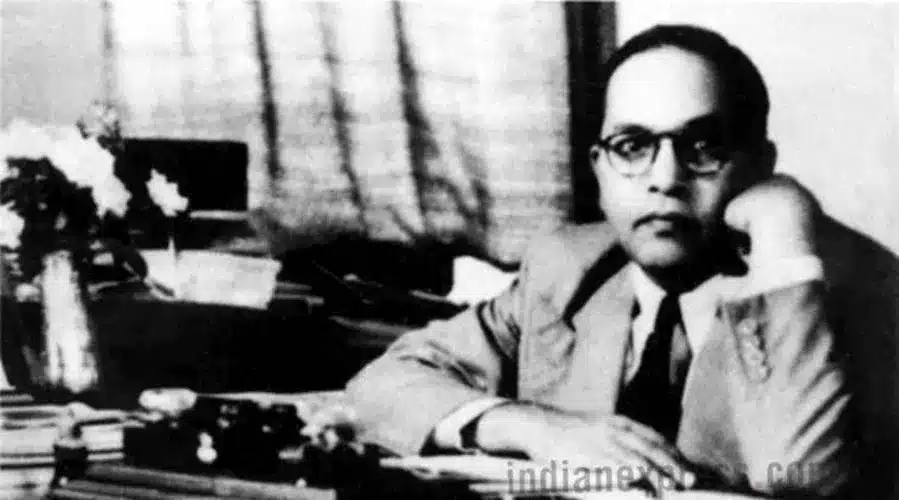Dr. B. R. Ambedkar: Champion of Equality and Human Rights

B. R. Ambedkar (14 April 1891 – 6 December 1956) was an Indian jurist, economist, and social reformer who fought economic and social discrimination against the untouchables. He was against the concept of untouchability in Hinduism. As a result, he renounced Hinduism and inspired the Dalit Buddhist movement.
Life and Career
Ambedkar was born in Madhya Pradesh on 14 April 1891. He was the 14th and last child of his parents. His father was an army officer with the rank of Subedar. Ambedkar was born into the Mahar (Dalit) caste, who were treated as untouchables and faced socioeconomic discrimination. Early on, Ambedkar and other untouchable children were segregated and given no attention or assistance by teachers.
Ambedkar’s family moved to Mumbai in 1897, where Ambedkar became the only untouchable enrolled in Elphinstone High School. When he was about 15 years old, he married Ramabai, a nine-year-old girl. The match per the customs prevailing at that time was arranged by the couple’s parents. By 1912, he had earned a degree in economics and political science from Bombay University and was prepared to join the government of Baroda. His wife and young family had just moved to Baroda.
Ambedkar moved to the United States at the age of 22 in 1913. The Baroda State Scholarship was awarded to him for three years as part of a scheme created by Sayajirao Gaekwad III. In October 1916, he enrolled at the London School of Economics and began working on his doctoral dissertation. His scholarship from Baroda ended in June 1917, and he returned to India.
Political career and fight against untouchability
The British colonial government announced the formation of a separate electorate for “Depressed Classes” in 1932. Due to the segregation approach, Gandhi feared that such an arrangement would divide the Hindu community, so he opposed a separate electorate for untouchables. Later, Ambedkar (on behalf of the depressed classes among Hindus) and Madan Mohan Malaviya (on behalf of the other Hindus) signed the Poona Pact on 25 September 1932. The agreement reserved seats for the depressed classes in the Provisional legislatures.
On 15 May 1936, B. R. Ambedkar published his book Annihilation of Caste. The book criticized Hindu orthodox religious leaders and caste systems in general and included a rebuke of Mahatma Gandhi. On 15 August 1947, the new Congress-led government invited Ambedkar to serve as the nation’s first Law Minister, which he accepted. It was on 29 August that he was appointed Chairman of the Constitution Drafting Committee and appointed by the Assembly to write India’s new Constitution. Article 370 of the Indian Constitution, which grants Jammu and Kashmir a special status, was included against Ambedkar’s wishes.
Union of Trinity
Dr. B. R. Ambedkar in his speeches elaborated on the idea of the union of the Trinity. He spoke on 25 November 1949 as his last speech to Constituent Assembly. He elaborated that there is a need to give up the grammar of anarchy and work toward social democracy. Ambedkar also warned to avoid hero worship. Though he elaborated many decades earlier, his viewpoints are of great relevance even today.
Recognition and legacy
Observer Voice is the one stop site for National, International news, Sports, Editor’s Choice, Art/culture contents, Quotes and much more. We also cover historical contents. Historical contents includes World History, Indian History, and what happened today. The website also covers Entertainment across the India and World.

